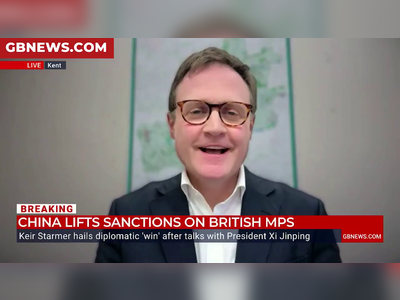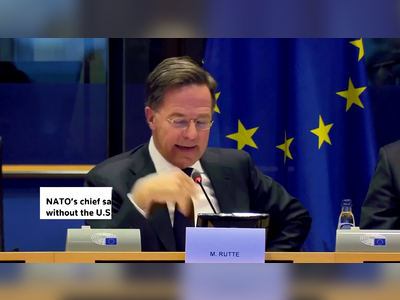Israel Closes Dublin Embassy Amid Rising Diplomatic Tensions with Ireland
A nuanced dispute over human rights and security concerns strains Irish-Israeli relations, highlighting clashing diplomatic identities.
In a move resonating beyond its immediate bilateral context, Israel has shuttered its embassy in Dublin, citing Ireland's prolonged stance on what it perceives as anti-Israel policies.
This diplomatic rupture underscores not only the fragility of Israeli-Irish relations but also the broader complexities entangled in contemporary international diplomacy.
The closure follows a long-standing series of grievances from the Israeli side, accentuated recently after the existential threats escalating from the October seventh attacks.
Israel criticizes Ireland for consistently siding with the Palestinians, culminating in what it regards as an inflammatory decision to recognize a Palestinian state.
For Israel, a nation battling enduring security threats despite its peace efforts like the Oslo Accords, the Irish position appears to neglect its fundamental security challenges.
Conversely, Ireland's historic commitment to human rights, heavily influenced by its own colonial experience, fuels its diplomatic stance.
Their support for international law and the pursuit of Palestinian sovereignty are part of an ingrained policy tradition, symbolized by the Tánaiste's initiative to push the Occupied Territories Bill.
This move aligns with Ireland's self-identification as a guardian of international justice, yet it has evidently inflamed tensions with Israel.
History imparts a paradoxical kinship as both Ireland and Israel bear scars of British colonial rule, creating unique lenses through which they engage in diplomacy.
While Ireland's focus on human rights echoes its past subjugation, Israel's insistence on its security imperatives springs from its constant encounter with existential threats.
Thus, Israel perceives a double standard in Ireland's vehement support for Palestinian rights amid its security anxieties.
The closure of the embassy marks more than a symbolic gesture; it reflects a strategic recalibration on Israel's part, potentially pivoting towards countries more aligned with its security outlook.
This decision not only curtails direct diplomatic channels but may also cause a bout of hardened stances on both sides.
This episode illustrates the clash between humanitarian advocacy and security imperatives, a conundrum prevalent in international relations.
It raises pertinent questions on how nations negotiate their historical legacies while confronting present geopolitical realities.
As the world watches this diplomatic standoff, it serves as a timely reminder of the intricate balance essential in global diplomacy, where differing national aspirations and histories meet on the international stage.
This diplomatic rupture underscores not only the fragility of Israeli-Irish relations but also the broader complexities entangled in contemporary international diplomacy.
The closure follows a long-standing series of grievances from the Israeli side, accentuated recently after the existential threats escalating from the October seventh attacks.
Israel criticizes Ireland for consistently siding with the Palestinians, culminating in what it regards as an inflammatory decision to recognize a Palestinian state.
For Israel, a nation battling enduring security threats despite its peace efforts like the Oslo Accords, the Irish position appears to neglect its fundamental security challenges.
Conversely, Ireland's historic commitment to human rights, heavily influenced by its own colonial experience, fuels its diplomatic stance.
Their support for international law and the pursuit of Palestinian sovereignty are part of an ingrained policy tradition, symbolized by the Tánaiste's initiative to push the Occupied Territories Bill.
This move aligns with Ireland's self-identification as a guardian of international justice, yet it has evidently inflamed tensions with Israel.
History imparts a paradoxical kinship as both Ireland and Israel bear scars of British colonial rule, creating unique lenses through which they engage in diplomacy.
While Ireland's focus on human rights echoes its past subjugation, Israel's insistence on its security imperatives springs from its constant encounter with existential threats.
Thus, Israel perceives a double standard in Ireland's vehement support for Palestinian rights amid its security anxieties.
The closure of the embassy marks more than a symbolic gesture; it reflects a strategic recalibration on Israel's part, potentially pivoting towards countries more aligned with its security outlook.
This decision not only curtails direct diplomatic channels but may also cause a bout of hardened stances on both sides.
This episode illustrates the clash between humanitarian advocacy and security imperatives, a conundrum prevalent in international relations.
It raises pertinent questions on how nations negotiate their historical legacies while confronting present geopolitical realities.
As the world watches this diplomatic standoff, it serves as a timely reminder of the intricate balance essential in global diplomacy, where differing national aspirations and histories meet on the international stage.











